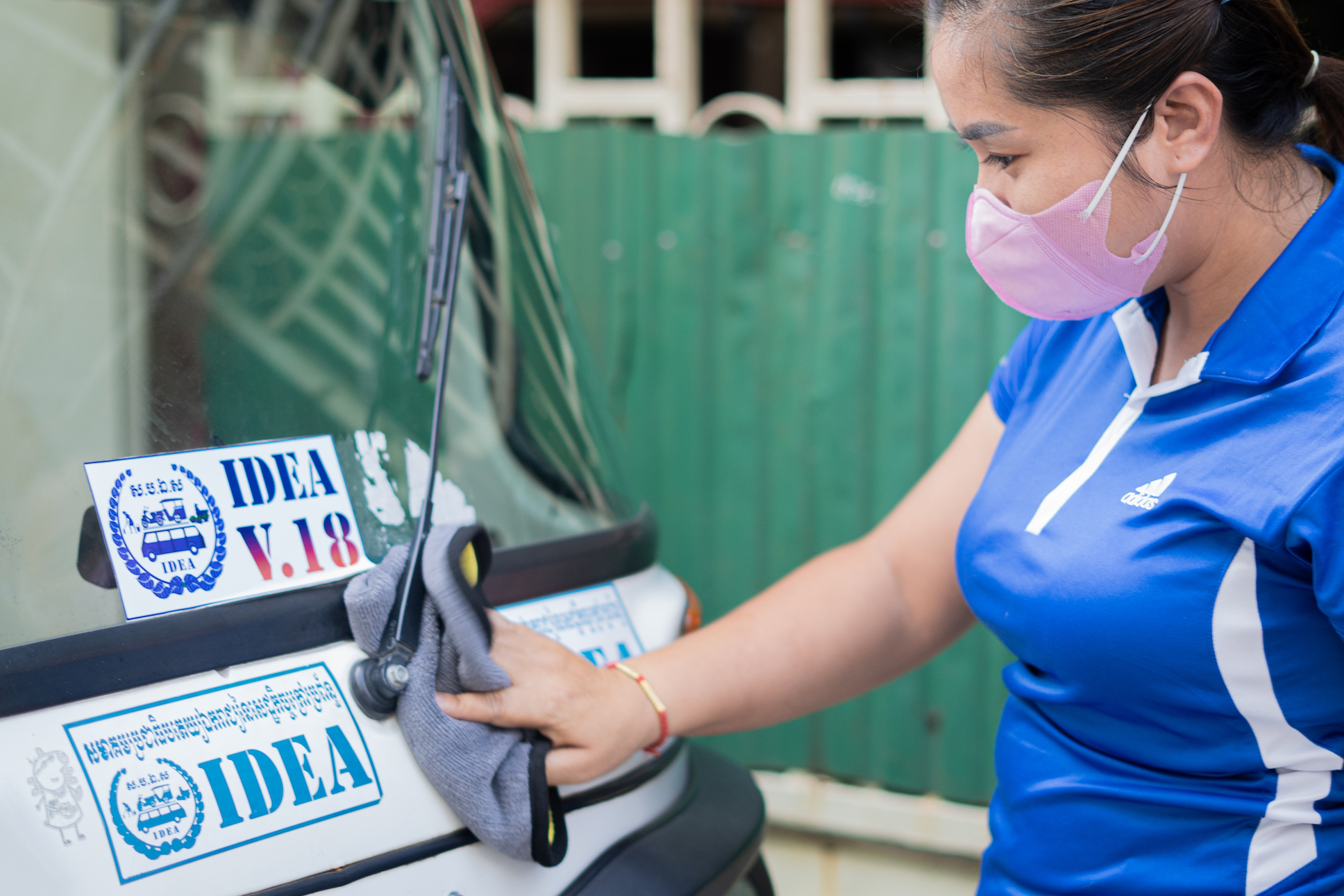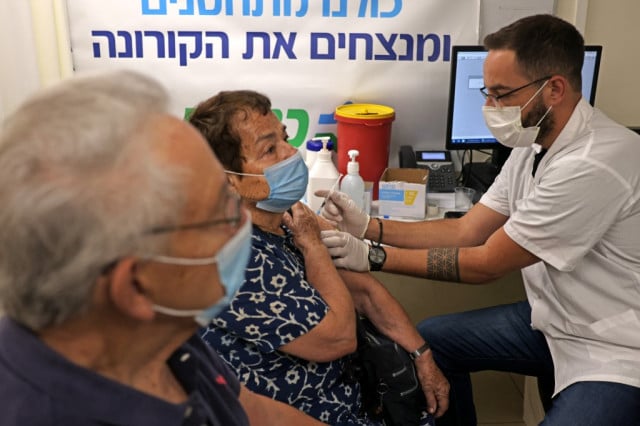Standing Firm to Support Female Tuk-Tuk Drivers

- By Tan Visal
- February 17, 2022 4:12 PM
Activist seeks health protection for fellow owners
PHNOM PENH--Sem Sreymao has a long day as a tourist tuk-tuk driver. She starts by cleaning her house, cooking and preparing breakfast for her two children before sending them to school.
Then, she gets herself ready, opens her driving app and waits for bookings. She usually returns home at around 10pm.
"Tuk Tuk drivers are classed as informal workers. This is because we are both the owner and worker of our business," she says.
"Unlike a formal worker, we don't have a salary. So, if we don't work hard, we will not get enough income."
Her life as a tuk-tuk driver has never been easy, and Covid-19 is making it even harder. The lockdown and fear of the virus have interrupted her only source of income. She earns less than before but has to spend more.
Sreymao, 30, used to make 60,000 riels (about $15) per day, but since the pandemic, the money she earns each day has dropped to as low as 10,000 riels (about $2.5). On some days she is lucky and makes 20,000 riels (about $5).
"It's been very hard, especially over the last two years with Covid-19,” she said.
“We don't get enough clients. Clients are afraid of the virus. On top of that, the costs of gasoline and the driving app have increased."
Sreymao is among millions of Cambodians who have a loan to pay each month. She borrowed $3,000 to buy a tuk-tuk when she decided to start this job in 2020, only three months before the pandemic hit the country.
For informal workers like Sreymao, medical expenses are the biggest burden, especially when problems require surgery. She tries to avoid the hospital as much as she can. "When I am sick, I dare not visit the hospital for a check-up. I could only afford to buy medicines from the pharmacy," she said.
"After taking a few pills, I feel better, so I get back to my work."
Sreymao has been actively involved with Independent Democracy of Informal Economy Association (IDEA) activities for two years. She is now an IDEA local leader, secretary of the council of representatives, and the women's tuk tuk leader in Phnom Penh with another 79 female members. She has attended training and related activities on social protection.

She is well aware that the National Social Protection Fund (NSSF) card is the support she needs from the government. She said she would feel safer if informal workers were protected under the scheme, especially when her job exposes her to high risks on the road every day. Also, her job is one of the most affected by the pandemic.
"I wish the NSSF would cover informal and marginalized workers too. At least, it would allow me to go to the hospital when needed. Like me, the drivers on the road are at risk of traffic accidents. We never know how much we have to spend for treatment each time," she said.
In providing support to citizens experiencing difficult times, she is committed to gathering more women tuk-tuk drivers, training them about their rights, protecting women drivers from all kinds of abuse and discrimination, and gaining state support in the future.
"We are taxpayers too. We deserve to be protected by the social protection system," she said.















